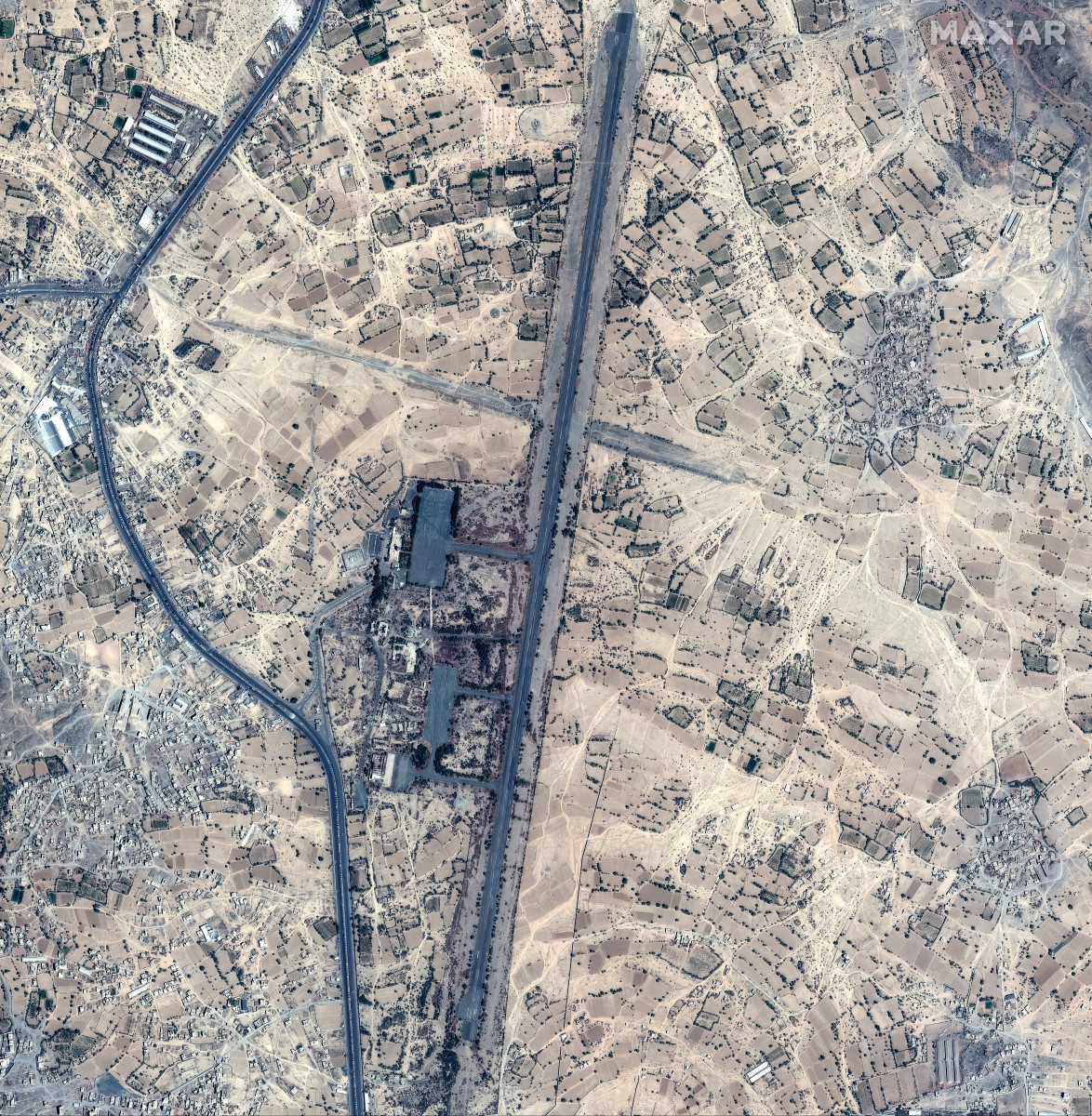WASHINGTON, United States - Recent strikes against Yemen's Huthis are unlikely to end the threat they pose to international shipping, with the Iran-backed rebels having already survived years of heavy aerial bombardment by Gulf states.

This handout satellite picture courtesy of Maxar Techonologies shows Taez airfield, in Taez, Yemen on January 12, 2024, after airstrikes by the United States and Britain. Yemen's Huthis launched an anti-ship ballistic missile on January 12, 2024 in retaliation for overnight American and British strikes targeting the Iran-backed rebels, a US general said. The assessment of damage from the strikes by the United States and Britain -- which targeted nearly 30 locations using more than 150 munitions -- is still ongoing, Sims said, noting however that the number of casualties is not expected to be high. (Photo by Satellite image ©2024 Maxar Technologies / AFP)
US and British forces targeted nearly 30 sites with more than 150 munitions overnight, striking the drone, missile and radar infrastructure the rebels have used to repeatedly attack merchant vessels in the Red Sea in recent weeks.
The United States still has additional military options available and top officials have warned of further action if the attacks continue, but an expanded air campaign in Yemen also risks escalation with Iran, which Washington is keen to avoid.
US Lieutenant General Douglas Sims said Friday that the Huthis have already fired an anti-ship ballistic missile in response to the strikes, and indicated that he anticipates broader fallout.
The Huthis' "rhetoric has been pretty strong and pretty high. I would expect that they will attempt to some sort of retaliation," he told journalists.
- Continued threat -
Jon Alterman, the director of the Middle East Program at the Center for Strategic and International Studies, said he thinks the recent strikes will "diminish but not end the Huthi threat to shipping."
"The challenge is making the Huthis conclude that more strikes will hurt their interests. It's far from clear they’ve reached that conclusion yet," he said.
Washington still has further options if the attacks go on, including continuing to strike the Huthis as well as targeting sites were Iranian trainers or experts are located, Alterman said.
Mark Schwartz, a retired US Army lieutenant general and current senior fellow at RAND, likewise said he expects the Huthi attacks on shipping to persist.
"I think that they will continue to try to attack maritime vessels. Probably commercial, maybe not so much military vessels that are out there," Schwartz said, referring to the growing number of warships deployed to the Red Sea to help intercept and deter Huthi drone and missile strikes.
The strikes carried out so far hit military infrastructure, but that could shift to targeting of Huthi military leadership if their attacks on shipping continue, he said, while noting that the rebels "are a cellular organization" and "hide amongst the population" -- attributes that can make them difficult to hit.
- 'Bear further costs' -
The Huthis have been the target of thousands of strikes by a Saudi-led coalition since 2015, but Riyadh is tellingly now angling for a ceasefire and a military exit from the country with the rebels undefeated and still in control of swathes of Yemen.
The Huthis claim they are targeting Israeli-linked vessels in support of Palestinians in Gaza, where Israel is battling militant group Hamas in a highly destructive conflict, but Washington says dozens of countries have ties to the ships that have been attacked.
Elliott Abrams, senior fellow for Middle Eastern studies at the Council on Foreign Relations, said the American and British strikes "seem to be serious attacks on Huthi sites rather than symbolic gestures."
"There's a good chance the Huthis will strike again -- but at a lower frequency and intensity," and that "Iran will tell them to cool it," he added.
The United States has been clear that the Huthis will face further repercussions if their attacks continue.
President Joe Biden said he will "not hesitate to direct further measures," while Defense Secretary Lloyd Austin warned that the Huthis "will bear further costs if they do not end their illegal attacks."